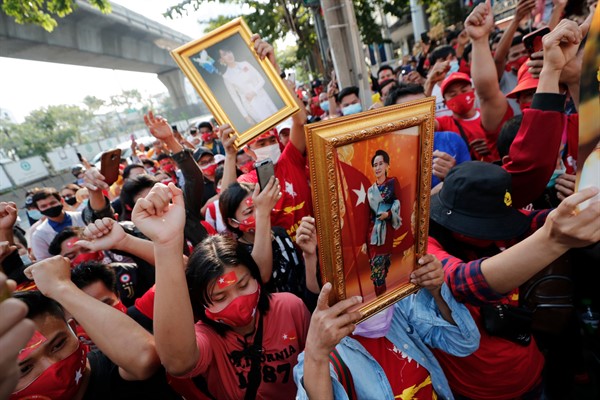When news started filtering out of Myanmar that the internet was dropping, troops were patrolling the streets of major cities, and Aung San Suu Kyi—the country’s civilian leader, who was once viewed in the West as a hero of democracy—had been taken into custody, the situation posed a quandary. Burma, as the country is also known, was in the midst of a coup. But how should the world respond?
A decade ago, Suu Kyi was a shining star. But today, she is known as a defender of ethnic cleansing and perhaps even genocide. Should democracies forcefully demand her release, or should their reaction be more muted in view of her recent defense of appalling actions by the military in the government she led, if not completely controlled?
Myanmar’s military quickly confirmed it had carried out a coup earlier this week, declaring a state of emergency for one year and detaining multiple government figures in addition to Suu Kyi. It later sentenced her to two years in prison on preposterous charges of possessing “illegally imported walkie-talkies.”

